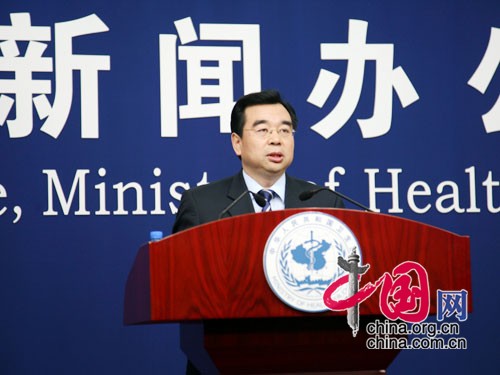A food additive - Benzoperoxide - used to bleach flour may soon be banned as another measure to ensure consumers' safety, the Ministry of Health (MOH) announced Wednesday.
Benzoperoxide, added to flour to make it appear whiter, is widely used in several countries, including the US, Canada, the Philippines and China.
The additive has been used in the country's flour production for over two decades.
"There is no need to use Benzoperoxide any more, thanks to the present advanced flour processing technology and improved wheat cultivars," Mao Qun'an, spokesman of the Ministry of Health, said.
|

|
|
Mao Qun'an, spokesman of the Ministry of Health |
"The ministry on Tuesday received a report from the State Administration of Grains urging us to stop the use of the flour-bleaching agent," Mao said.
The decision to ban the additive would only be taken after the ministry has discussed the report, he said.
"After we reach a conclusion, we will ask the Standardization Administration of the People's Republic of China to revise the method of flour production," Mao added.
Benzoperoxide came under public scrutiny last month when the Guangzhou-based Southern Weekend newspaper questioned whether the presence of the bleaching agent in flour was safe for consumers.
The paper said the health ministry was reluctant to ban the additive because it wanted to protect the economic interest of Benzoperoxide producers.
Mao denied the accusation saying that the paper had not interviewed his ministry before publishing the report.
"The newspaper report is groundless. It is likely to cause misunderstanding toward food additives among the public," he said. "Food additives are not the same as poison."
China's food additive regulation stipulates a "dynamic mechanism" to decide if certain agents can be used or not, Mao said.
"A food additive is used only after it has been evaluated under strict procedures and has cleared all safety tests."
In 2005 for example, the ministry banned potassium bromate - also used in flour production - because it is harmful to human health, Mao said, noting the correct and proper use of "some additives may improve food quality".
Additives help maintain the nutrition value in food and extend its shelf life, he said.
"The proper use of food additives has never caused safety risks in China. What we are against is their excessive use," said Mao.
(China Daily?December 11, 2008)